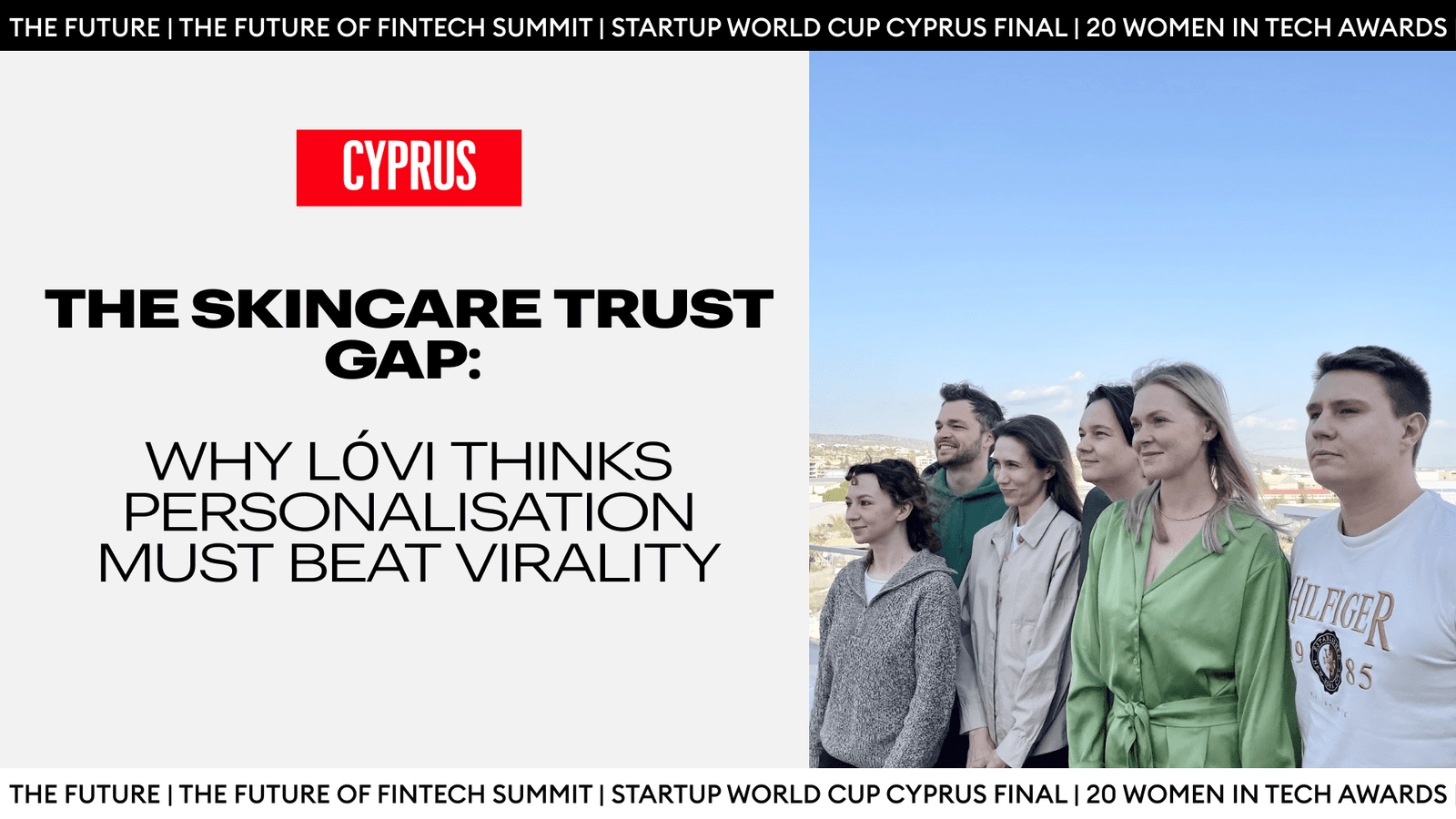In the landscape of FinTech, few figures stand out quite like Kos Stiskin, Co-founder, Supervisory Board Chairman, and Head of Strategy at Finom.
His journey from venture capitalist to entrepreneur, leading one of Europe’s foremost SME digital banks, offers a wealth of insights into the challenges and strategies that define success in this competitive industry.
Follow THE FUTURE on LinkedIn, Facebook, Instagram, X and Telegram
In a recent onstage interview at the Startup World Cup 2024, Stiskin shared his experiences, shedding light on the intricacies of building a FinTech company from the ground up.
A Foundation Built on Diverse Experience
Stiskin’s background is as multifaceted as the FinTech sector itself. Before co-founding Finom, he spent a decade in venture capital (VC) and four years as an entrepreneur, navigating industries as varied as cosmetics, technology, genetics, and, of course, financial technology. This breadth of experience has equipped him with a unique perspective on the challenges and opportunities that arise at different stages of business growth.
When discussing the establishment of Finom, Stiskin is quick to downplay the initial process, noting that “establishing is easy, like, you just start a company, and it starts working.” However, he underscores that the real test lies in building the company—a process fraught with challenges that can be both financially and emotionally taxing.
The Challenges of 2022: A Year of Trial
For Finom, 2022 was a year marked by significant challenges. As Stiskin recounts, the company found itself in a precarious position due to a combination of market collapse and geopolitical tensions. Attempting to raise funds in a climate where “the words Russians and FinTech in Cyprus” were enough to deter investors proved to be a daunting task. This period also saw internal conflicts among existing investors, further complicating the company’s efforts to secure the necessary capital.
Despite these hurdles, Finom managed to navigate the storm, emerging with valuable lessons about resilience and the importance of strategic adaptability. Stiskin’s experience during this time serves as a powerful reminder that in the volatile world of FinTech, even the best-laid plans can be upended by external forces beyond one’s control.
Strategic Prioritisation: The Key to Sustainable Growth
One of the central themes in Stiskin’s approach to business is the importance of strategic prioritisation. He advocates for a methodical, step-by-step approach to growth, emphasising the need to first develop a Minimum Viable Product (MVP), followed by a focus on traction, retention, and finally, monetisation. This sequential strategy, while seemingly straightforward, requires a keen understanding of market dynamics and customer behaviour.
Stiskin also highlights the critical role of data in prioritising different aspects of a business. According to him, there are three primary areas to consider: infrastructure, revenue, and client growth. The challenge lies in determining which of these should take precedence at any given time, depending on the company’s immediate needs and long-term goals.
Interestingly, Stiskin admits that Finom may have over-prioritised infrastructure at times, a decision that, while beneficial for the company, might not be suitable for others. This candour reflects his broader philosophy that there is no one-size-fits-all approach to building a successful FinTech company. Instead, success often hinges on making informed, data-driven decisions tailored to the specific context in which a business operates.
Differentiation in a Crowded Market
The FinTech sector is undeniably crowded, with numerous companies vying for dominance. Yet, Stiskin is quick to point out that within the realm of SME digital banking, the competition is less intense than one might expect. “The penetration of SME digital banking is like 3%—it’s nothing,” he notes, suggesting that there is ample room for growth in this niche market.
This perspective underscores the importance of identifying and capitalising on underserved markets. While consumer-focused FinTech solutions may be abundant, Stiskin sees significant potential in catering to the specific needs of small and medium-sized enterprises (SMEs), a segment that has traditionally been overlooked by mainstream financial institutions.
The Future of FinTech: Compliance, Risk, and AI
Looking ahead, Stiskin identifies compliance, risk management, and artificial intelligence (AI) as key trends shaping the future of FinTech. He notes that while trends in compliance and risk often signal increased challenges for clients, they also present opportunities for companies like Finom to innovate and enhance customer experience.
AI, in particular, holds promise for automating backend processes, potentially revolutionising the way compliance and risk management are handled within the industry. However, Stiskin cautions that the challenge lies in balancing efficiency with the need to navigate complex regulatory environments—a task that requires both technological expertise and strategic foresight.
Leadership and the Digital Economy: A Balanced View
When it comes to leadership, Stiskin’s approach is rooted in transparency. He believes in maintaining open communication and fostering a culture of trust within his team. This leadership style, he suggests, is crucial in an industry where rapid change and high stakes are the norm.
As for the broader digital economy, Stiskin offers a balanced view. While acknowledging the tremendous potential of digitalisation, he warns against overvaluing certain business models, such as SaaS subscriptions, at the expense of exploring innovations in more traditional sectors like engineering and real estate. His message is clear: the future of FinTech and the digital economy lies not just in cutting-edge technology, but in finding innovative solutions to real-world problems.
Conclusion: Advice for Aspiring Entrepreneurs
In closing, Stiskin’s advice to aspiring entrepreneurs is both simple and profound: follow your passion, even when it leads you down uncertain paths. Drawing on his own experiences, he emphasises the importance of staying true to one’s vision, even in the face of adversity. For those willing to take the plunge, the rewards—both personal and professional—can be immeasurable.
Kos Stiskin’s journey with Finom is a testament to the resilience, strategic thinking, and innovation required to succeed in the fast-paced world of FinTech. As the industry continues to evolve, his insights offer valuable guidance for entrepreneurs and business leaders navigating their own paths in this dynamic field.














